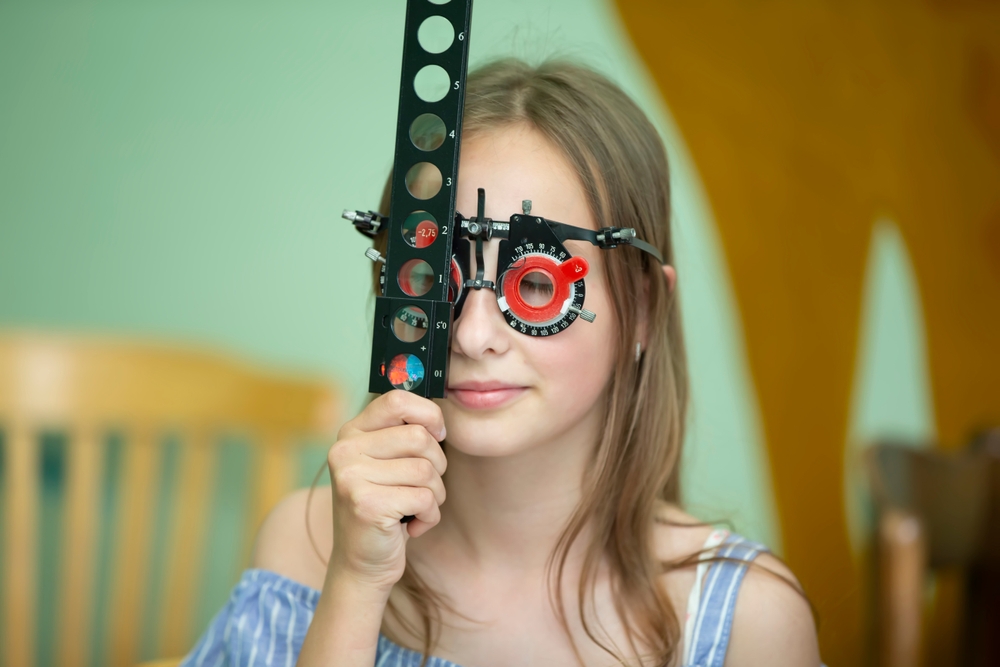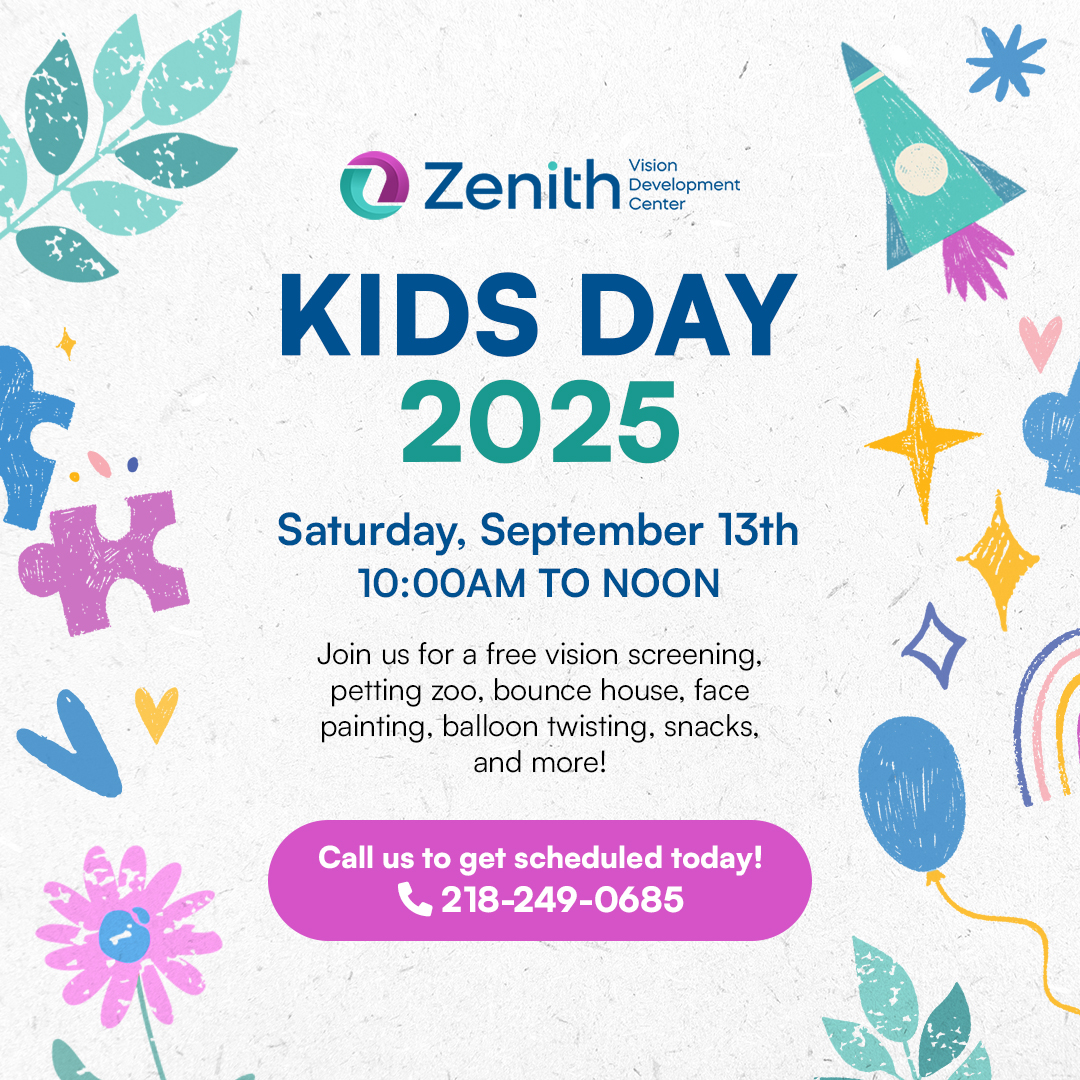
When it comes to vision, many of us think of seeing clearly as a simple matter of getting the right prescription. However, for millions of people, visual challenges extend far beyond the clarity of their eyesight. Visual issues like double vision, trouble focusing, and difficulties with depth perception can have a profound impact on daily life, learning, and even self-confidence.
Understanding Vision Therapy
Vision therapy is a personalized program designed to improve the brain's ability to control eye functions. It goes beyond corrective lenses and addresses underlying issues related to eye coordination, focusing, and visual processing. Vision therapy is effective for people of all ages, from young children who struggle with reading to adults dealing with lingering effects of concussions or age-related visual changes.
Vision Therapy for Children
Children with strabismus (misaligned eyes) and amblyopia (often known as “lazy eye”) face unique visual challenges that can impact their depth perception, eye coordination, and overall vision development. Strabismus causes one or both eyes to turn inward, outward, upward, or downward, making it difficult for the brain to integrate images from both eyes. Amblyopia occurs when one eye becomes weaker due to a misalignment or significant difference in refractive error, leading the brain to rely more heavily on the stronger eye and neglect the weaker one. Vision therapy can be highly beneficial for children with these conditions, as it involves a series of targeted exercises and activities designed to improve eye alignment, strengthen eye muscles, and enhance the brain's ability to process visual input from both eyes.
Kids with vision issues may have trouble reading, become easily frustrated with schoolwork, or struggle to follow along in sports. When left untreated, these issues can impact not just academic performance but also self-esteem and social development. With vision therapy, children can strengthen their visual skills through targeted exercises that make reading easier, improve focus, and even enhance their depth perception.
Young Adults and the Demands of Modern Life
Young adults are increasingly aware of the impact of digital screens on their visual health. Constantly shifting focus between screens and the real world can lead to eye strain, headaches, and even difficulty concentrating. For college students or professionals facing intense demands on their vision, these symptoms can become barriers to productivity and success.
Vision therapy can help alleviate digital eye strain and improve visual efficiency, making it easier for young adults to adapt to the demands of a screen-heavy lifestyle. By teaching strategies for effective focus, eye coordination, and visual endurance, our program provides the skills needed to thrive in an increasingly digital world.
Midlife Changes and New Challenges
For many adults, midlife brings new visual challenges. While aging affects everyone differently, some may experience a decline in near vision, making tasks like reading small print or threading a needle difficult. Others might develop symptoms of eye fatigue or double vision that interfere with daily tasks.
At Zenith Vision Development Center, we offer vision therapy designed to meet the needs of midlife adults, enhancing focus, reducing visual discomfort, and addressing symptoms that impact quality of life. Vision therapy is particularly beneficial for those dealing with progressive lenses or bifocals, providing exercises that help the eyes adjust to different focal points more seamlessly.
Overcoming Injury: Vision Therapy for Post-Concussion Recovery
For those who have experienced traumatic brain injury, including concussions, vision therapy can be an invaluable tool. Brain injuries often disrupt the way the brain processes visual information, leading to difficulties with balance, spatial awareness, and reading. These symptoms can make everyday tasks overwhelming and limit independence.
By retraining the brain and eyes to work together, vision therapy helps individuals regain independence, improve coordination, and restore confidence in their abilities. We support patients on their journey to recovery, providing hope and the skills to rebuild their visual foundation.
Vision Therapy for Seniors: Rediscovering Independence
As we age, changes in our vision can sometimes lead to a loss of independence. Tasks like driving, reading, and navigating familiar spaces can become challenging. For seniors, vision therapy offers a way to regain control and confidence. By improving visual processing, reaction time, and coordination, vision therapy can help seniors maintain a higher quality of life and reduce the risk of falls.
Building a Brighter Future with Vision Therapy at Zenith Vision Development Center
Vision therapy is not a quick fix, but it offers lasting solutions. By addressing the root causes of visual challenges, it empowers individuals to overcome barriers and find a new sense of hope. At Zenith Vision Development Center, we believe that no one should have to live with the frustration of untreated visual issues, and we’re committed to helping people of all ages achieve better vision and greater confidence.
If you or a loved one is struggling with visual challenges, reach out to Zenith Vision Development Center to learn how vision therapy can help you move from struggles to solutions, no matter where you are in life. Visit our office in Duluth, Minnesota, or call (218) 249-0685 to book an appointment today.









